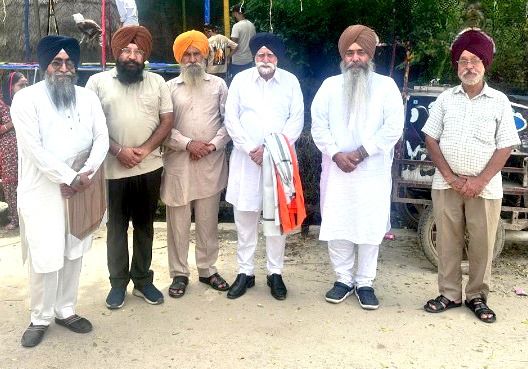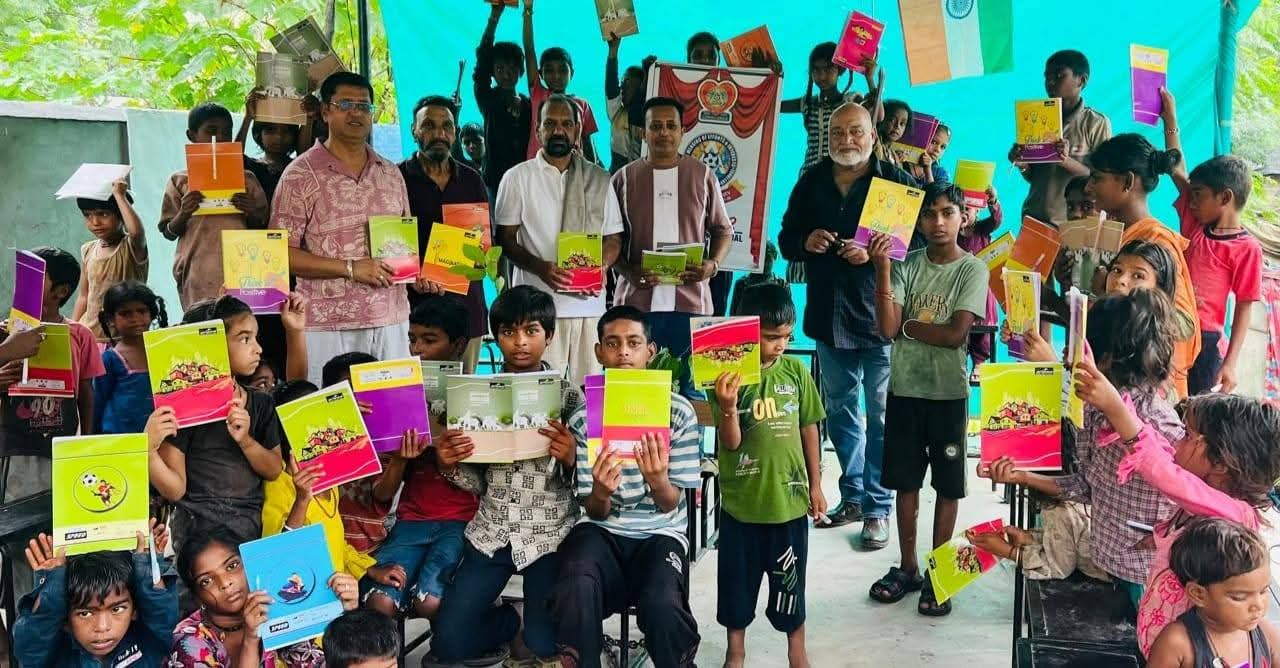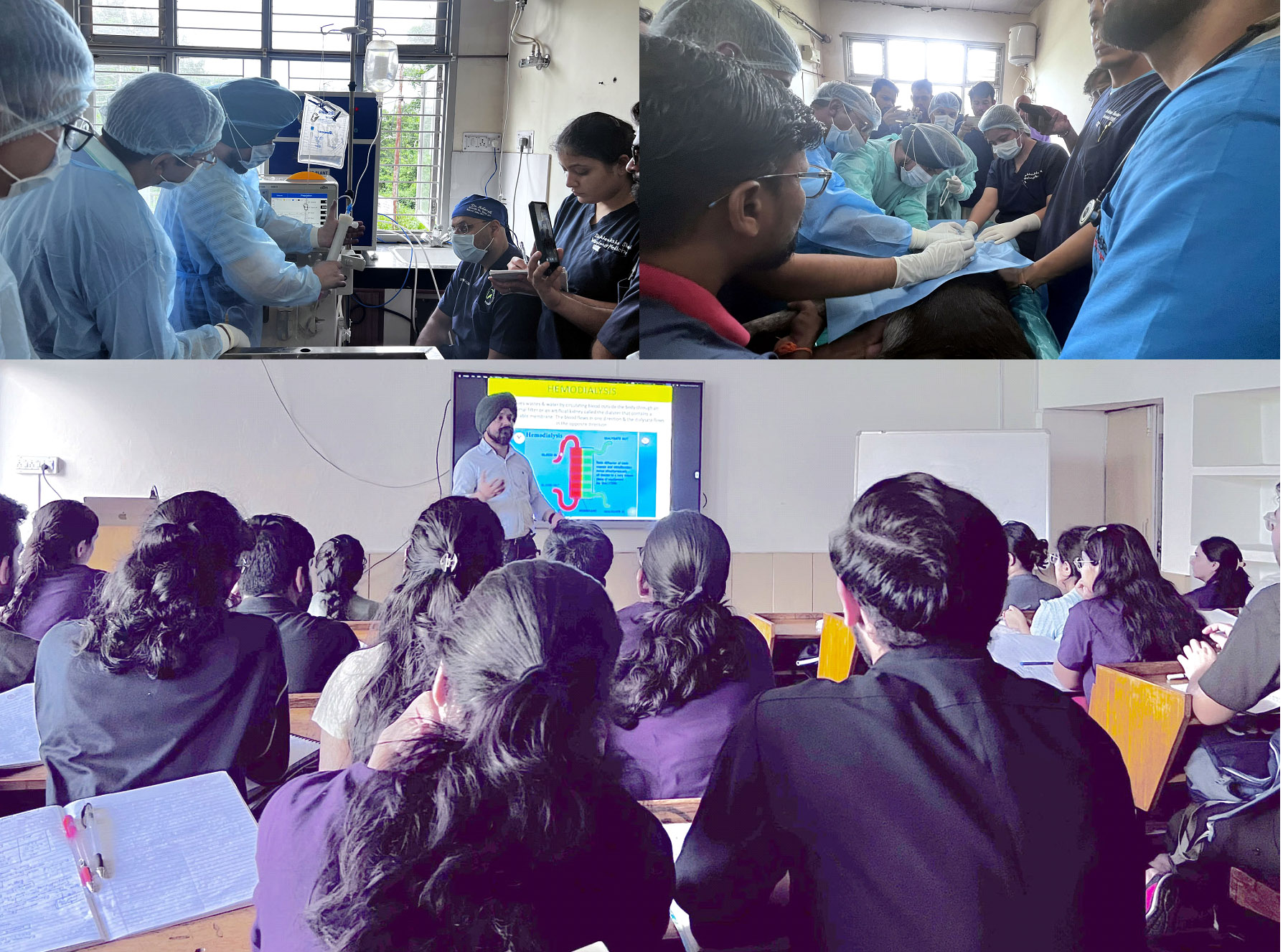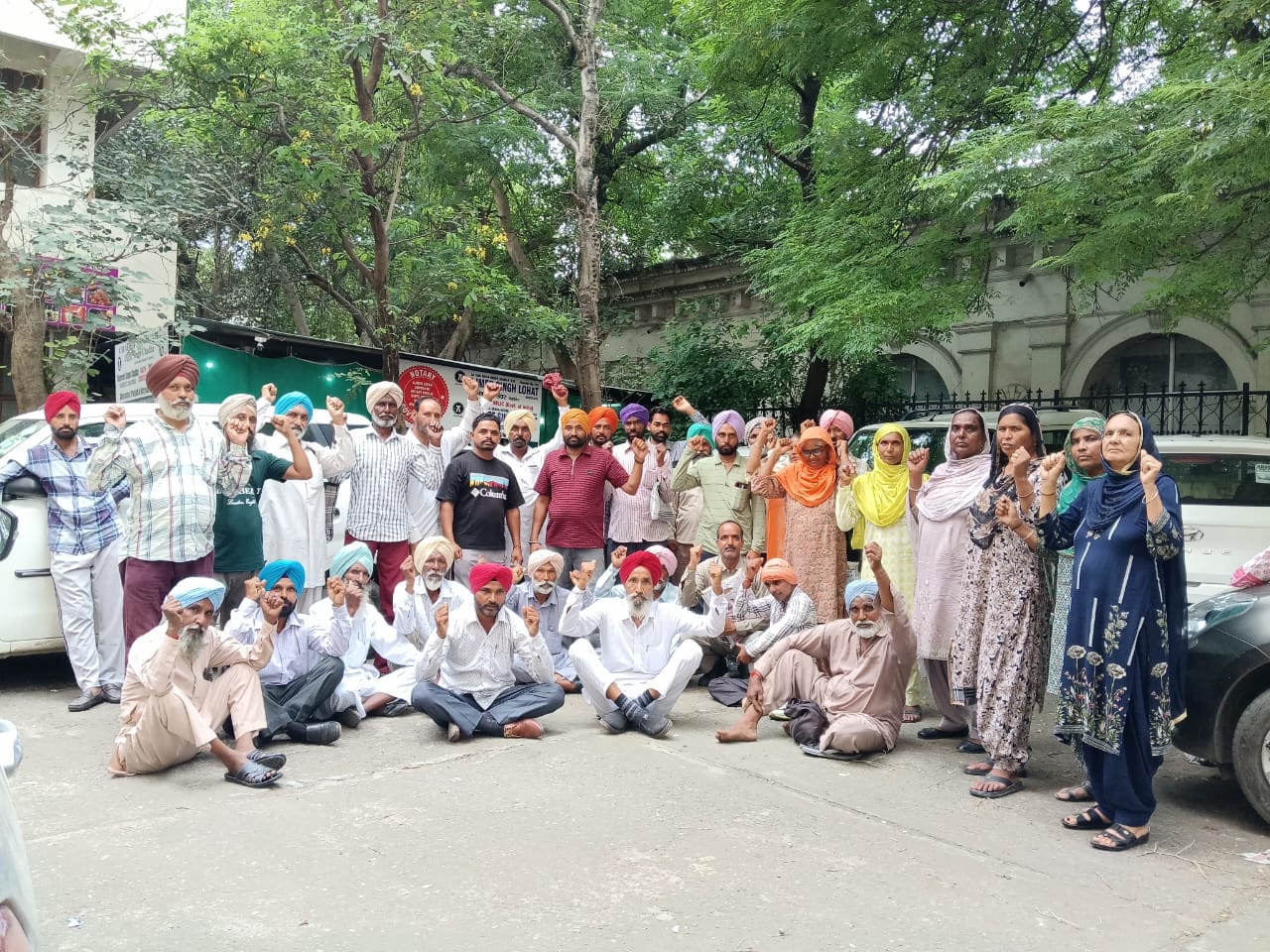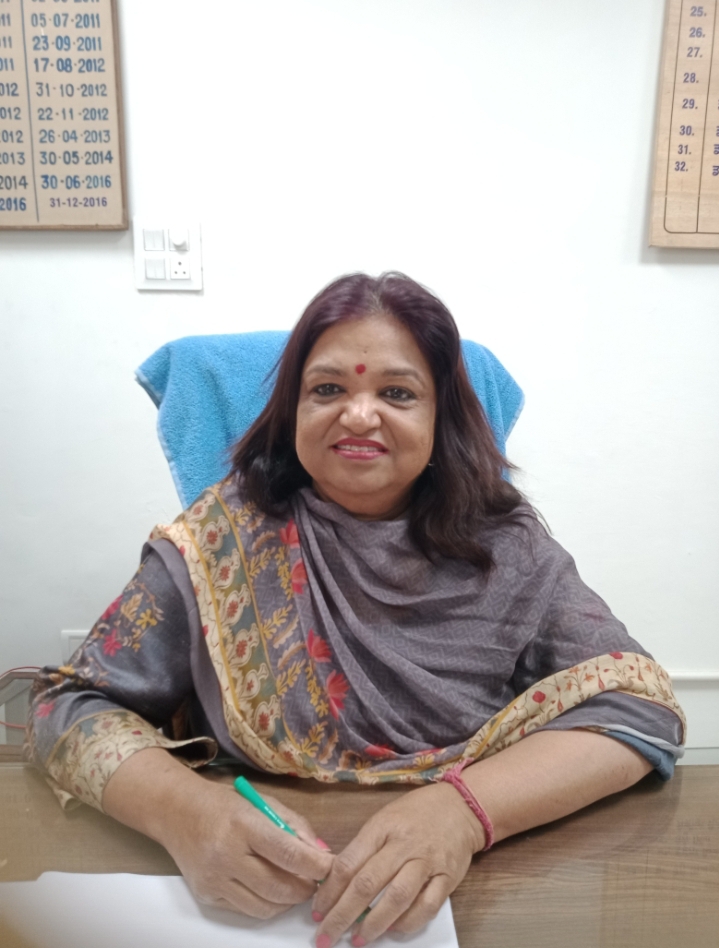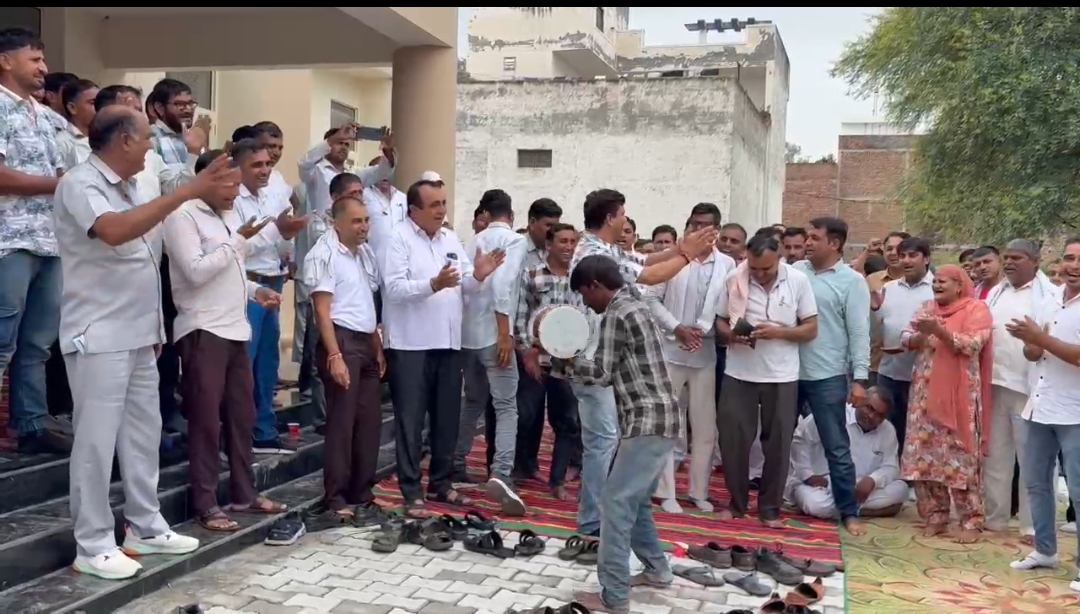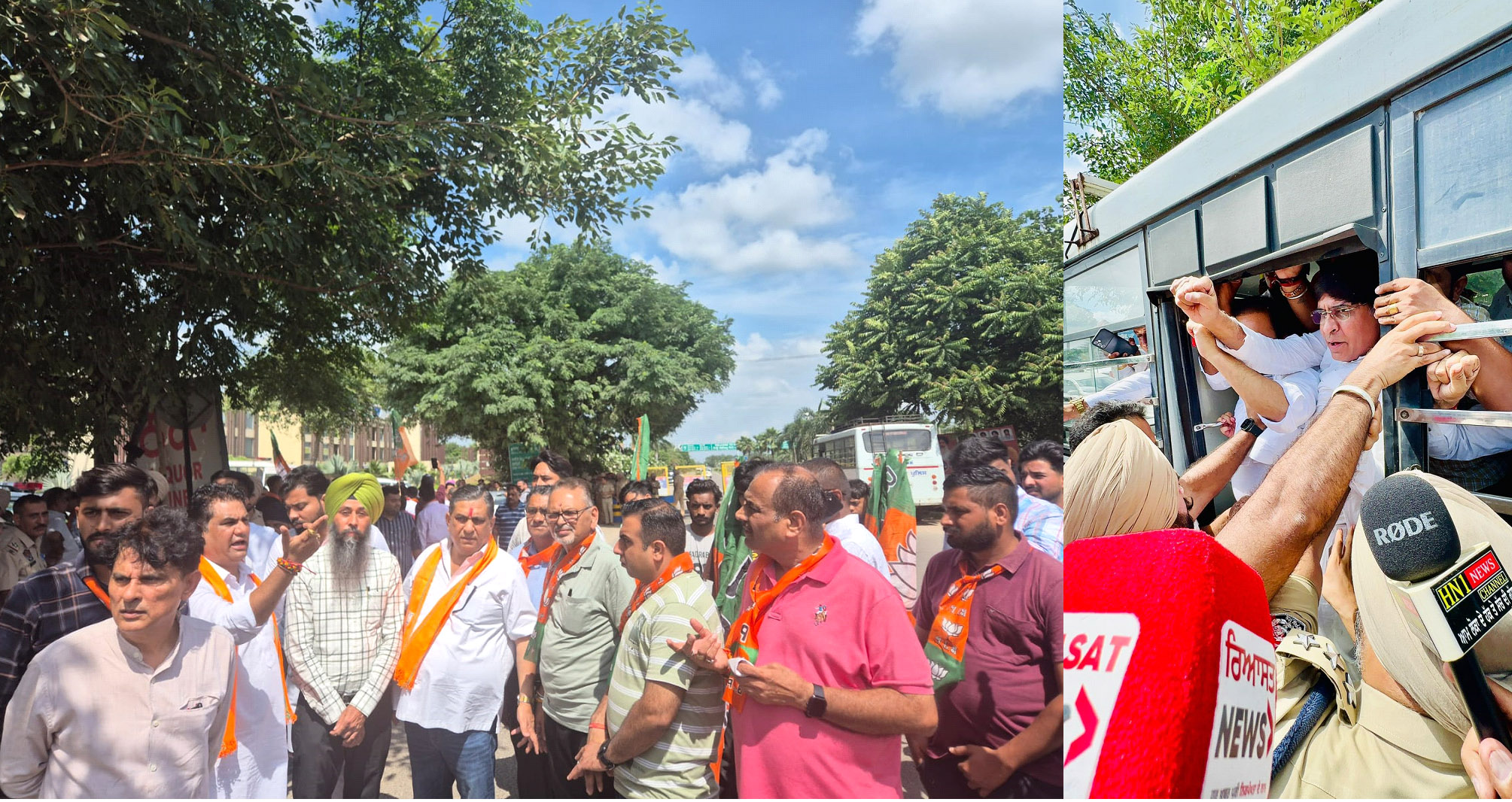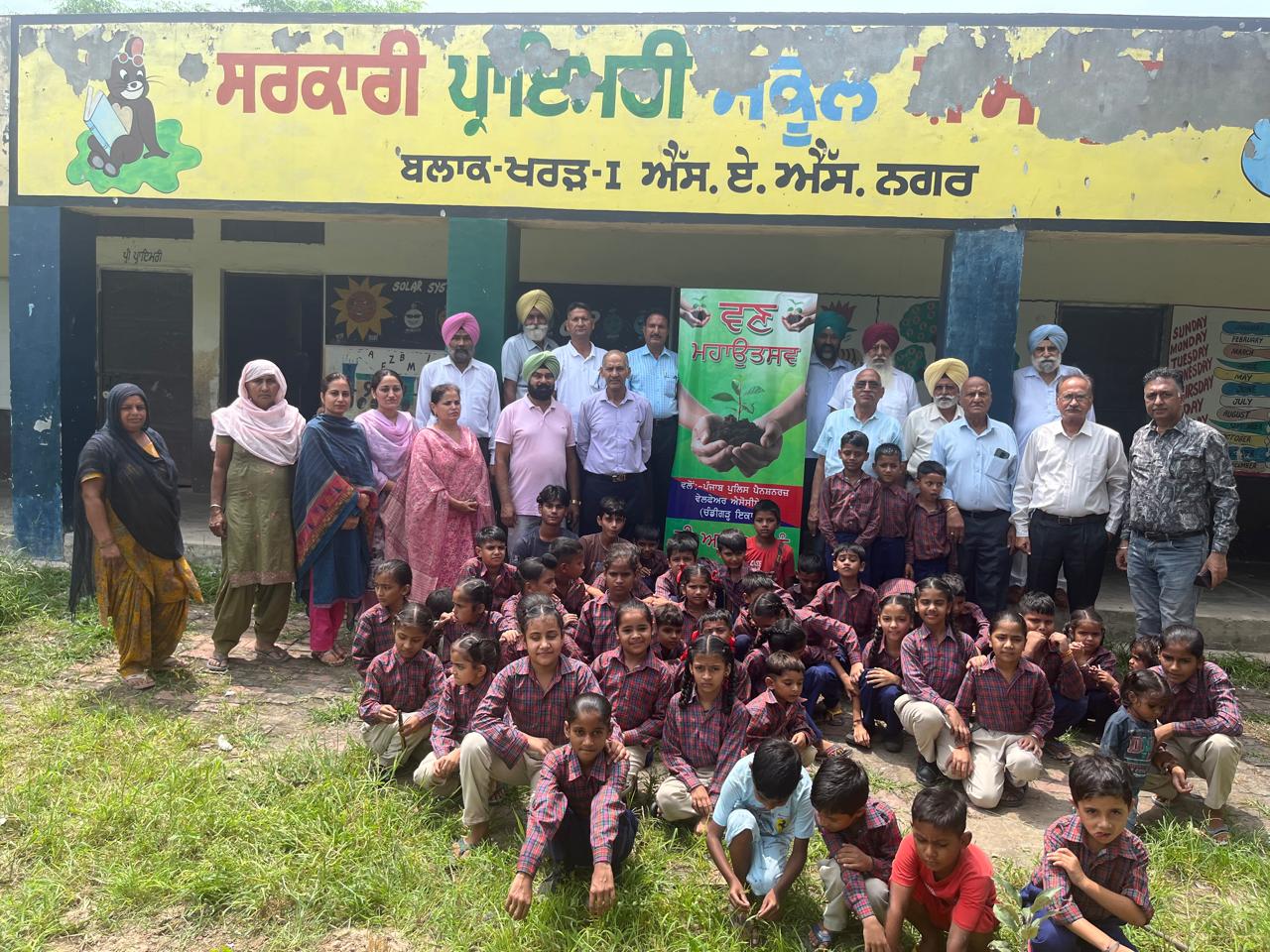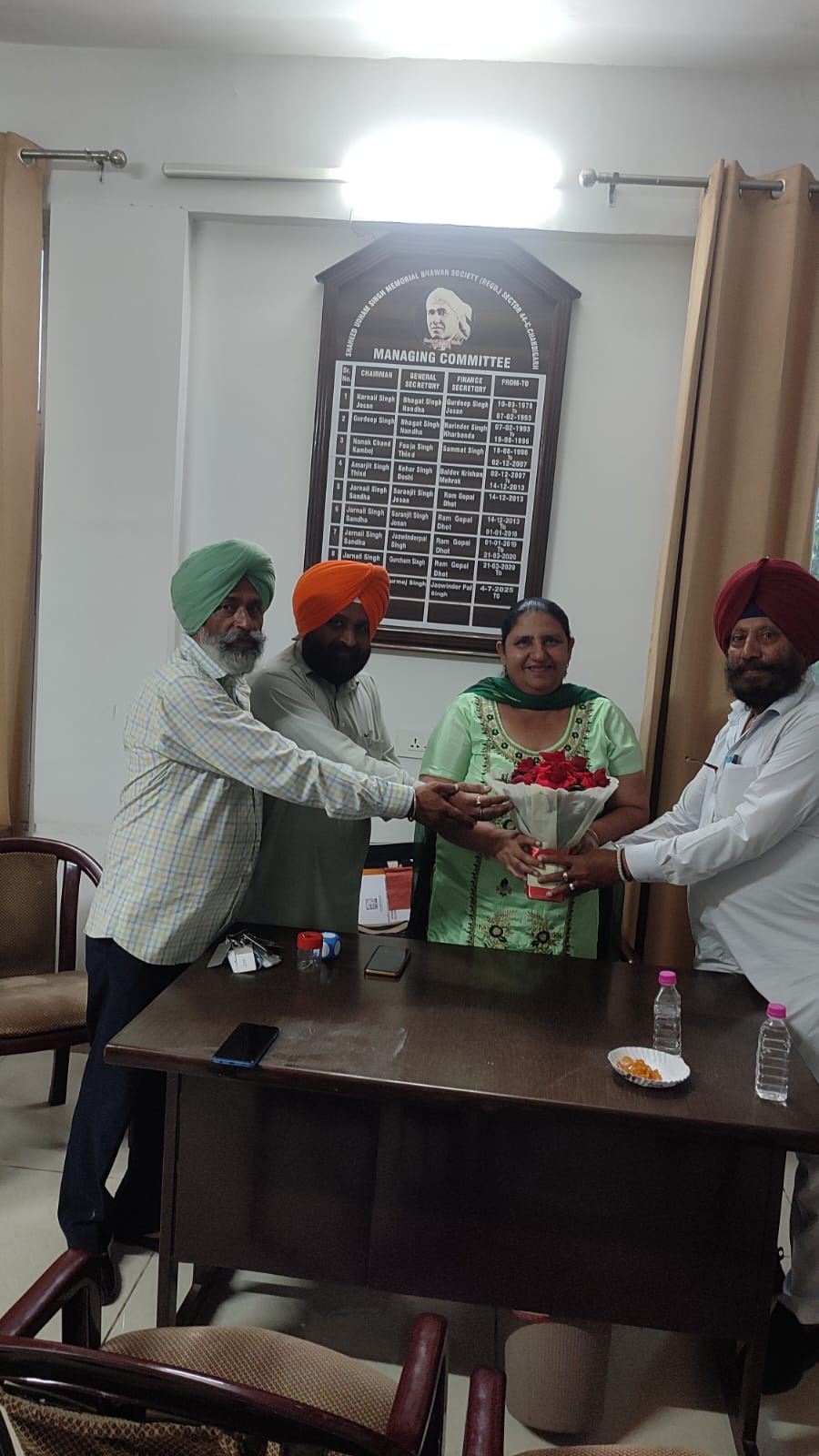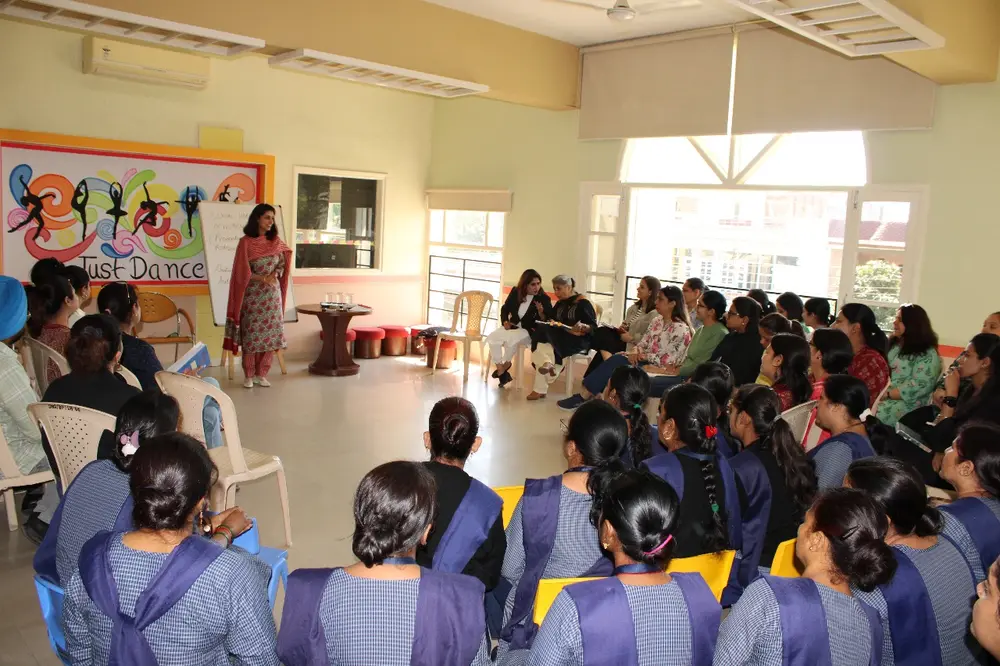
District Legal Services Authority holds a seminar on 'Prevention of Sexual Harassment at Workplace' at Small Wonders School, Mohali
SAS Nagar, 17 March 2025- Under the guidance of Sh. Atul Kasana, District & Sessions Judge, SAS Nagar, District Legal Services Authority, S.A.S. Nagar organized a seminar on ‘The Prevention of Sexual Harassment (PoSH) at Workplace’ at Small Wonders School, Mohali to discuss the problems faced by the women workers at their respective work places.
SAS Nagar, 17 March 2025- Under the guidance of Sh. Atul Kasana, District & Sessions Judge, SAS Nagar, District Legal Services Authority, S.A.S. Nagar organized a seminar on ‘The Prevention of Sexual Harassment (PoSH) at Workplace’ at Small Wonders School, Mohali to discuss the problems faced by the women workers at their respective work places.
Ms. Surabhi Prashar, CJM-cum-Secretary, District Legal Services Authority, SAS Nagar disclosed that Punjab State Legal Services Authority, SAS Nagar has launched a month long campaign “Safety of Women at Workplaces” from 01.03.2025 to 31.03.2025. Under this campaign, she apprised the Principal, Teachers and staff members of the School regarding various provisions of PoSH Act and discussed the guidelines given by the Hon’ble Supreme Court in the case ‘Vishakha and others v. State of Rajasthan’.
She further discussed the significant ruling in the case of ‘Aureliano Fernandes versus State of Goa and Others’ in which the Hon’ble Supreme Court has highlighted that appellant commenced his career as a Temporary Lecturer in the Department of Political Science. He was appointed as the Head of the said Department. However, two girl students along with their friends submitted a complaint to the University, alleging physical harassment at his hands.
The appellant alleged a well-organized conspiracy against him by some wayward students in connivance with the members of the faculty. Whereas, the complaint committee after the 18 meetings reported that the charge of sexual harassment has been established and this act of appellant also amounted to a grave misconduct and gross violation of Rule 3(1)(III) of Conduct Rules and thus, it recommended for termination of his services.
It was held by the Court that the committee has completely overlooked the cardinal principle that justice must not only be done, but should manifestly be seen to be done. The principles of audi alterem partem could not have been thrown to the winds in this cavalier manner.
Sexual harassment also includes the conduct of co-workers who engage in verbal or physically harassing behavior, Sexual advances, requests or demand for sexual favours, either explicitly or implicitly, in return for employment, promotion or examination, Eve teasing, unwelcome invitations meet outside office, suggestive comments or jokes, physical confinement against one’s will and intruding one’s privacy etc. which have the potential to humiliate or embarrass an employee or the company.
She elaborated the steps to be taken for the prevention of sexual harassment at the work place and she guided the audience by giving various suggestions like dealing upfront with the harasser, do not pretend it did not happen, immediately inform the alleged harasser that the behaviour is unwelcome, demand that the harassment must stop.
Further she also spoke about the Protection of Child from Sexual Offence (POCSO) Act, 2012 has been enacted to deal with child sexual abuse cases. The Act came into force with effect from 14th November, 2012. The POCSO Act, 2012 provides for the protection of children from the offences of sexual assault, sexual harassment and pornography.
This Act contains child friendly provisions for reporting, recording of evidence, investigation and speedy trial of offences through Special Courts. The interest of the child is protected at every stage of the judicial process. Under the POCSO Act a child means any person below the age of 18 years.
Under this Act no reports in any media shall disclose, the identity of a child including his name, address, photograph, family details, school, neighbourhood or any other particulars which may lead to disclosure of identity of the child. Disclosure can be made only with the permission of the Special Court. Special Court may allow disclosure if it is in the interest of the child.

